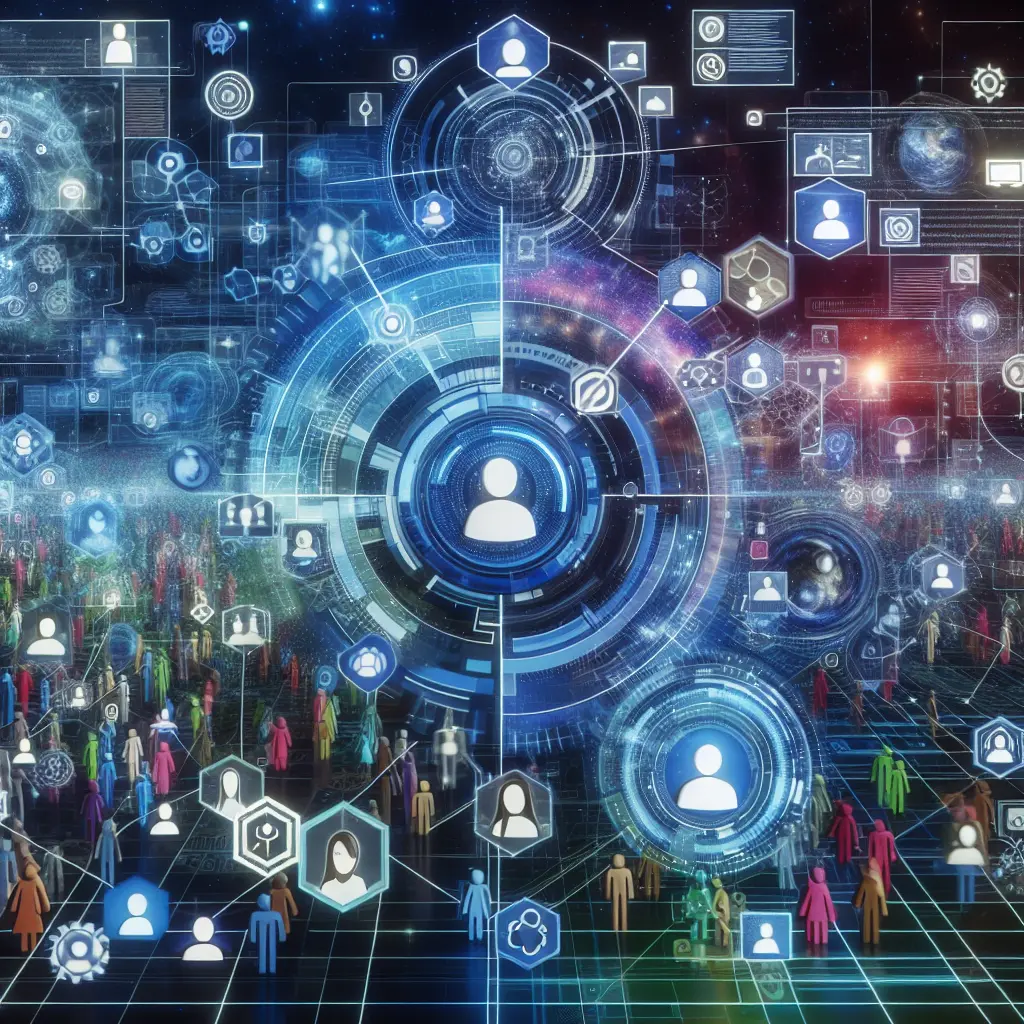
In the rapidly evolving landscape of social media, the future of Facebook promises to redefine how we engage with digital communities. As advancements in Facebook technology continue to shape online interaction, the platform's role in virtual communities becomes increasingly pivotal. With groundbreaking innovations like the Facebook metaverse, the potential for transforming virtual reality into a mainstream mode of communication is immense. This digital transformation heralds a new era of community building, where boundaries are transcended, and connections are made more immersive than ever before.
In the fast-paced world of social media evolution, Facebook stands at the forefront, transforming virtual communities through innovative technologies and digital strategies. Its ambitious strides in digital transformation promise groundbreaking changes that will redefine online interaction. This evolution is not merely about adapting to technological advancements but spearheading a movement toward immersive, personalized digital experiences. As we explore Facebook's future, it is essential to consider recent updates that have highlighted both challenges and opportunities for the platform.
The Rise of Facebook Metaverse: A New Era in Virtual Reality
One of the most talked-about innovations is the Facebook metaverse, a virtual space poised to revolutionize how we engage with digital communities. By leveraging virtual reality, Facebook aims to create an immersive environment where users can interact as if they were in the same physical space. This shift aligns with broader social networking trends that emphasize personalized experiences.
However, as Facebook delves into virtual reality, it must address significant challenges. For instance, the ban of a fake political group in Montana highlights concerns over coordinated inauthentic behavior. Such incidents underscore the importance of safeguarding digital communities against misinformation while fostering genuine interaction.
Challenges in Community Building: Misinformation and Regulation
Community building in the digital age is fraught with obstacles, particularly regarding misinformation and regulation. Recent inquiries by Congress into drug-related advertisements on Facebook and Instagram exemplify the regulatory scrutiny facing Meta. These challenges necessitate robust measures to ensure user safety while maintaining trust in virtual communities.
The prevalence of AI-generated content, as noted in Meta's Creator Bonus Program, adds another layer of complexity. While AI can enhance online interaction, it risks saturating feeds with low-quality content, detracting from meaningful engagement. Addressing these issues is crucial for Facebook to sustain its role as a leader in social media evolution.
Engaging Diverse Audiences: The Role of Facebook Marketplace
In targeting younger demographics, Meta has recognized the potential of Facebook Marketplace as a tool to attract Gen Z users who might otherwise shun traditional social media platforms. The appeal of Facebook Marketplace lies in its ability to offer bargains and connect users within digital communities centered around commerce. This strategic move aligns with the social networking future's focus on catering to diverse audiences through tailored experiences.
The challenge, however, is maintaining this engagement while balancing other aspects of Facebook's offerings. Innovations like Marketplace must be integrated seamlessly with broader community-building efforts to create cohesive digital ecosystems that enhance user experience across the board.
The Impact of Digital Transformation on Personal and Professional Networks
Facebook's digital transformation extends beyond enhancing personal interactions; it holds significant implications for professional networks as well. The integration of virtual reality within the Facebook metaverse could revolutionize professional collaboration, offering new dimensions for meetings, training, and networking.
Yet, these innovations must navigate ethical considerations and potential misuse. Incidents such as the destruction of a 6,000-year-old cave painting for a Facebook photo serve as stark reminders of the responsibilities accompanying digital connectivity. Safeguarding cultural heritage and promoting responsible usage are critical to ensuring that technological advancements benefit society as a whole.
Harnessing AI for Enhanced Engagement
Amidst these developments, Meta has been focusing on AI as a catalyst for enhanced engagement. During its Q2 2024 earnings call, Meta highlighted successes in AI technology advancements that promise to elevate user experience by personalizing content delivery. This progress positions Meta AI to become a leading digital assistant, providing users with tailored recommendations and interactions.
However, this emphasis on AI also brings challenges. The proliferation of AI-generated content, often derided as "AI slop," could undermine user trust if not carefully managed. Striking a balance between leveraging AI for personalization and maintaining content quality is vital for sustaining Facebook engagement and fostering vibrant virtual communities.
Conclusion: Navigating the Future of Digital Communities
The future of Facebook is intertwined with the broader trajectory of social media evolution. As the platform navigates its role in virtual communities, it faces both exciting opportunities and formidable challenges. From harnessing the potential of the metaverse to addressing regulatory concerns and AI content management, Facebook's journey is emblematic of the dynamic landscape of digital transformation.
By prioritizing immersive experiences and personalized engagement, Facebook can redefine community building in ways that transcend traditional boundaries. As we observe these trends unfold, it becomes clear that successful navigation requires not only technological prowess but also a commitment to ethical considerations and user-centric innovation.
Facebook's path forward will shape not only its future but also the broader social networking future. Whether through transformative technologies or strategic community-building efforts, its role in virtual communities remains pivotal as we venture into an increasingly connected world.
Thank you for exploring this journey with me. Let’s continue to shape the future of digital communities together.
Author: Clara Johnson